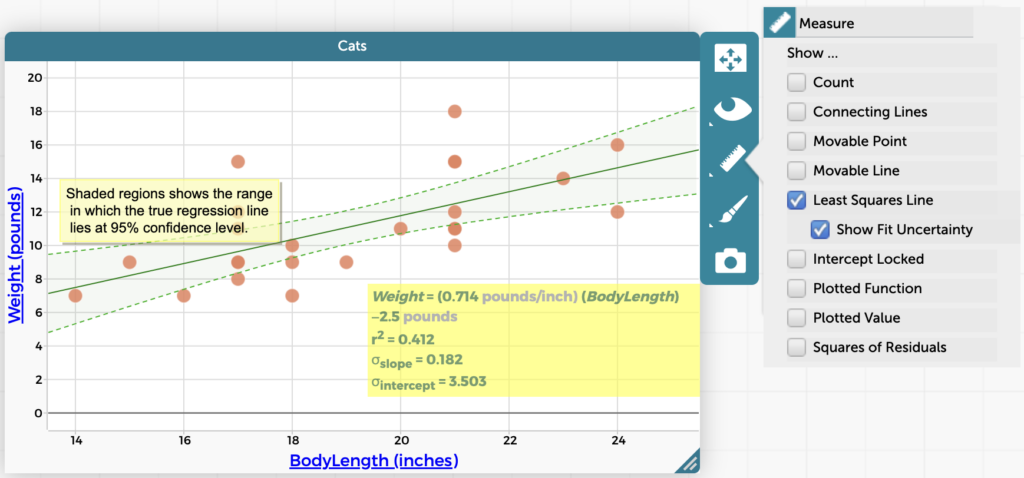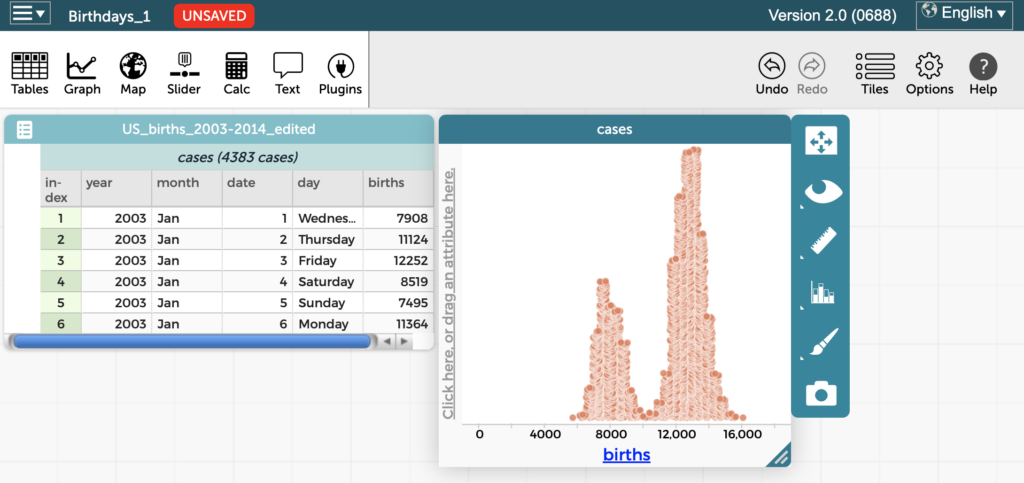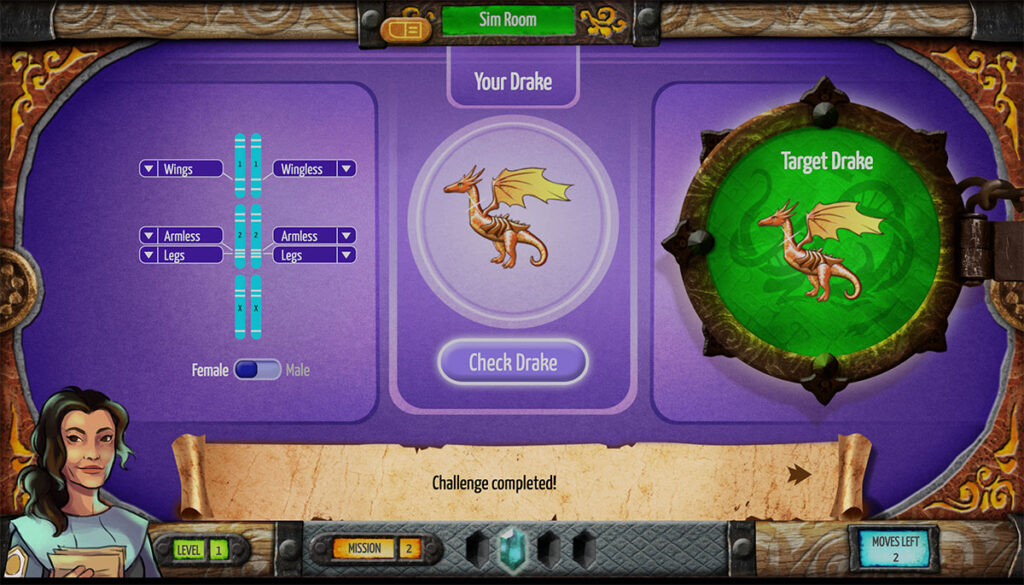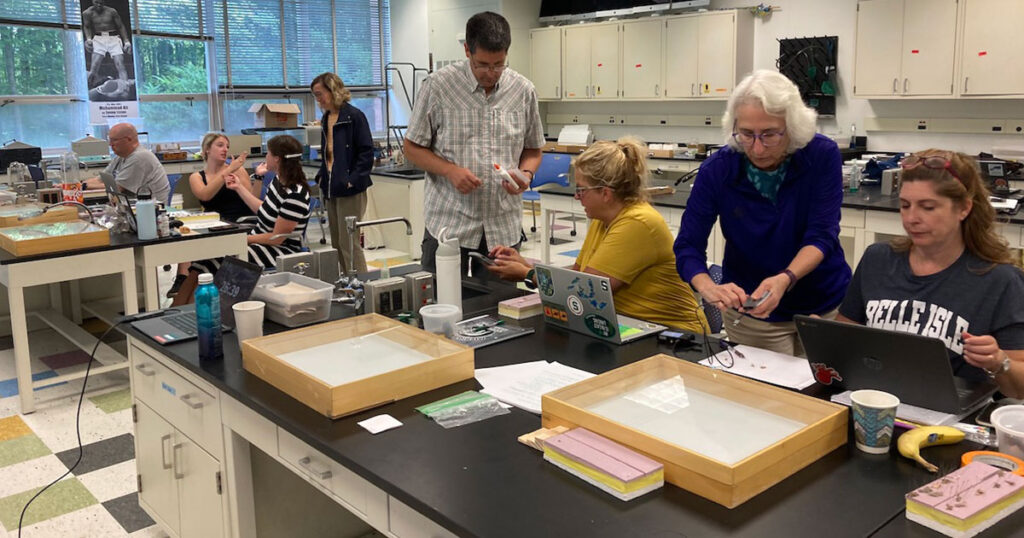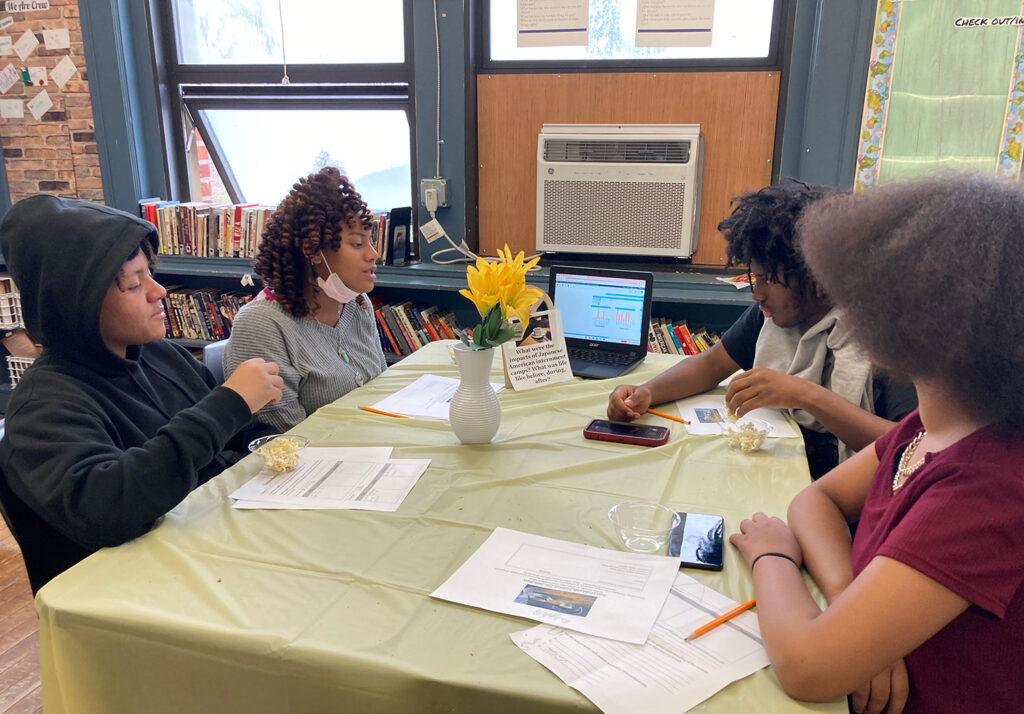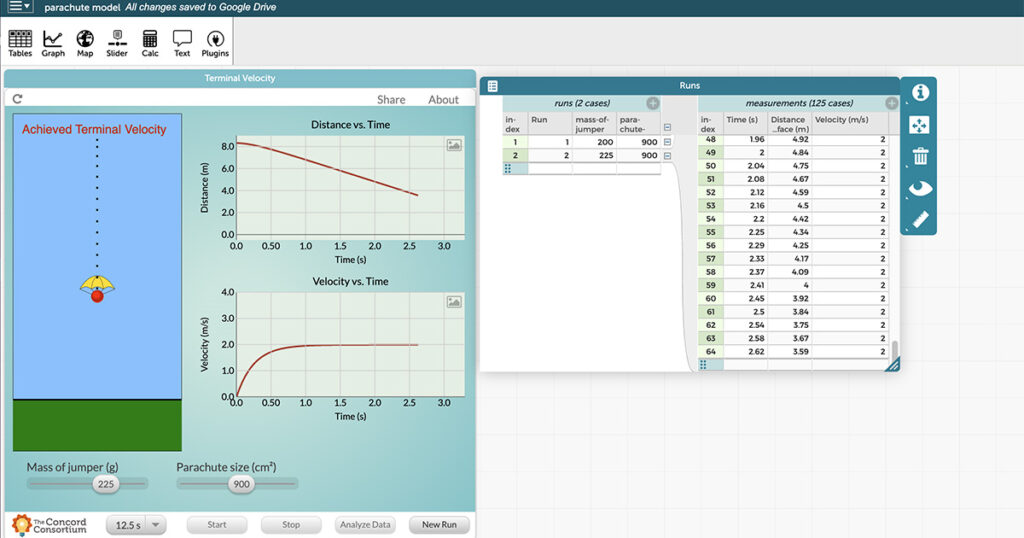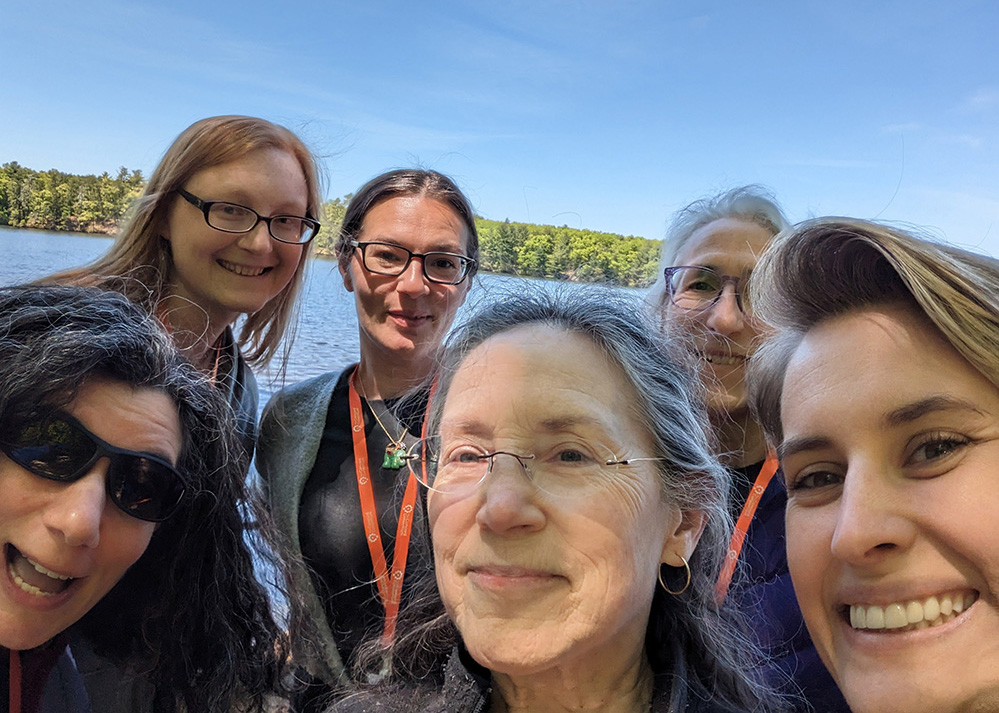Category: Data Science Education
The CODAP website has a growing library of CODAP help resources aimed at highlighting handy features and improving your CODAP experience, so you can do even more with data exploration and visualization. Below you’ll find a sample of recent CODAP help resources and some additional CODAP features you may not have known about. Read on to […]
If one of your New Year’s resolutions is to add more data exploration to your lessons this year, we have a week’s worth of activities to get you started. Because data is interdisciplinary, you can find a home for it in any scientific discipline from astronomy to zoology, and across the halls in humanities, social […]
The Concord Consortium, in collaboration with Texas Tech University, the University of Florida, and WestEd, was awarded a $4 million Education Innovation and Research grant from the U.S. Department of Education. The five-year project will develop a year-long Artificial Intelligence (AI) in Math supplemental certificate program for secondary Algebra I or Integrated Math 1 classes. […]
2024 marks our 30th anniversary. Our origins reach back to a simple beginning, on a single-board computer with a mere one kilobyte of memory. But it’s not about the computer itself—it’s never just the technology. It’s what the computer made possible that matters. When Bob Tinker connected a KIM-1 computer to an expansion board he’d […]
Social media has been exploding with New Year’s resolutions since early fall. If you’d like to get a head start on your own educational resolutions for the next calendar year, we’ve got you covered. Want to help students see Earth science as a lab science? Add more data science activities to your high school classes? […]
Moths live around the world. Despite their ubiquity, they haven’t been studied nearly as much as their daytime counterparts, not even by entomologists. Butterflies have gotten most of the attention. The MothEd: Authentic Science for Elementary and Middle School Students project is exploring ways to deepen independent science inquiry learning in young learners using technology […]
Google “Japanese Internment data” and you’ll find thousands of links. There are sites dedicated to Japanese culture, ancestry, and history, plus government records, university departments, museums, and public television stations with scores of information. There are even sites devoted to finding other sites with links to data. I recently found myself, like Edgar Allan Poe, […]
We are delighted to announce that you can now assign CODAP documents in Google Classroom in the same way you assign Google Docs. Easy peasy! As a teacher, you can create a CODAP document, then assign it to your class so that each student gets their own copy. They can explore a data table or […]
While our main offices are located in Concord, Massachusetts, and El Cerrito, California, nine of our 45 employees call other states home. Like many companies, we began working remotely during the pandemic and most of us continue to do so much of the time. But as an organization dedicated to innovating and inspiring equitable, large-scale […]
At this six-month milestone of our efforts to re-engineer CODAP, I’m excited about the progress we’re making towards modernizing CODAP’s underlying source code. By moving from Sproutcore to more up-to-date web application tools, including Typescript, React, and D3, we’re working to ensure that CODAP will support data science education for many years—and for many more […]
